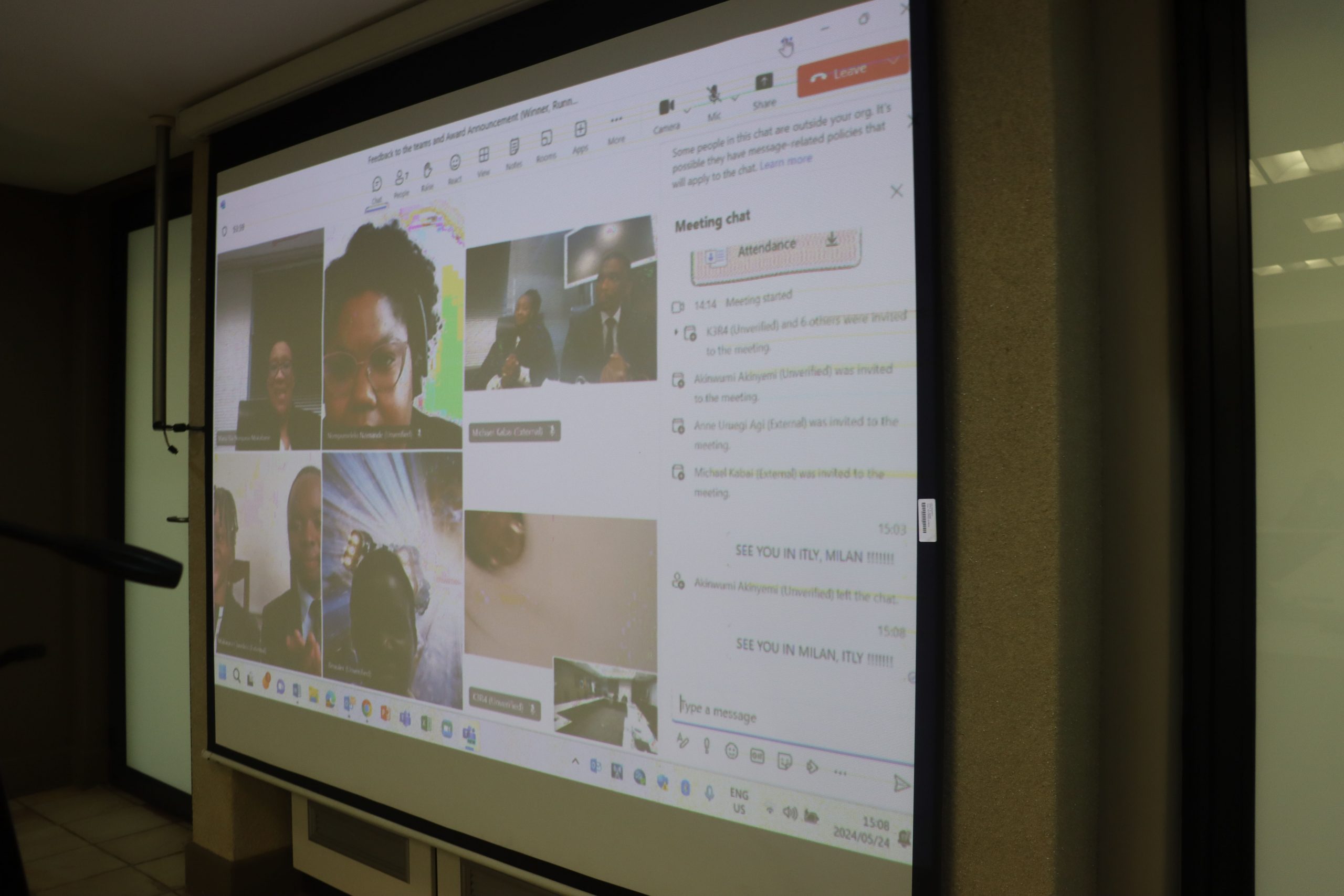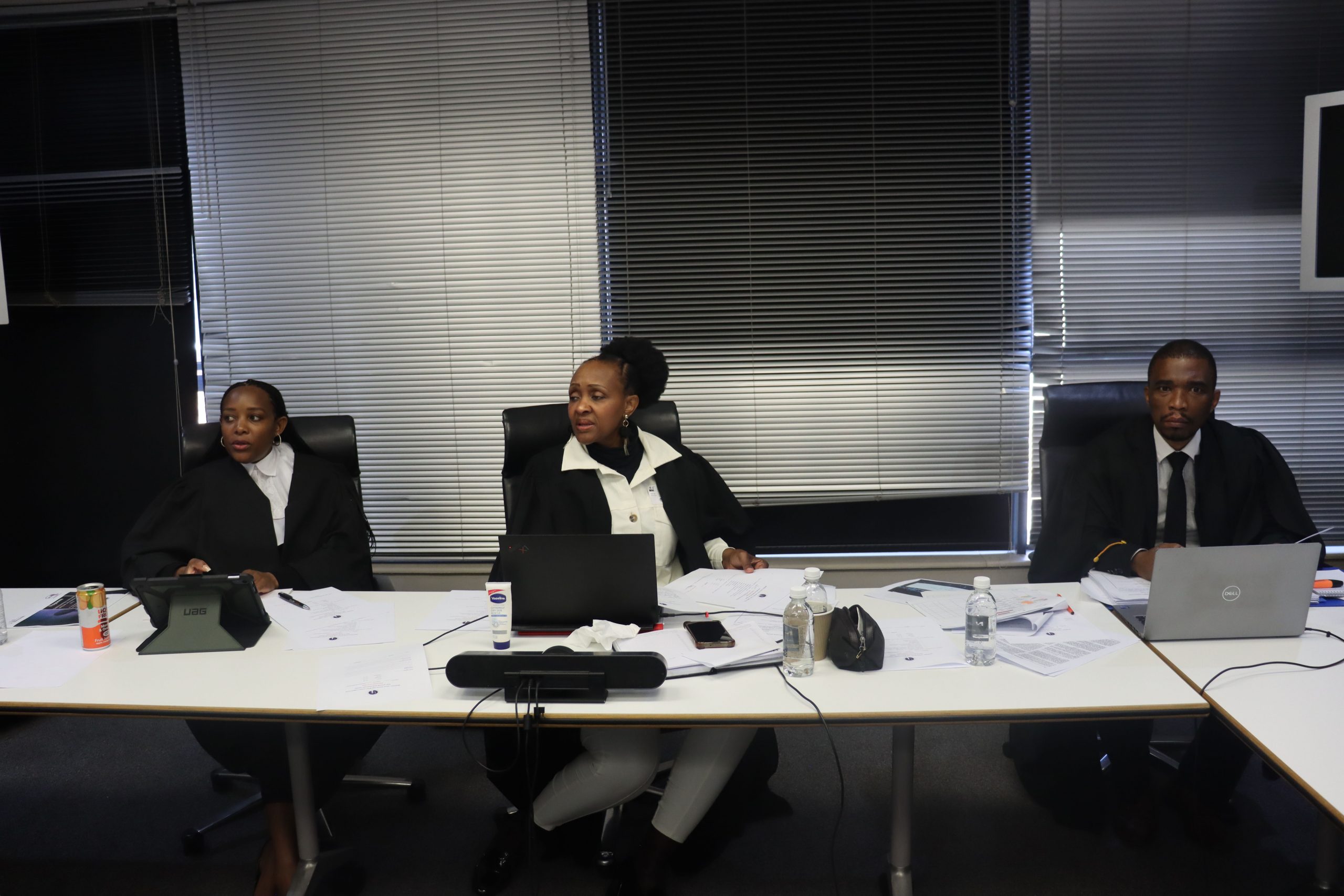Africa Round of the Manfred Lachs Moot Court Competition, held virtually, by Judges seating at the CSIR Knowledge Commons from 22nd- 24th May 2024.
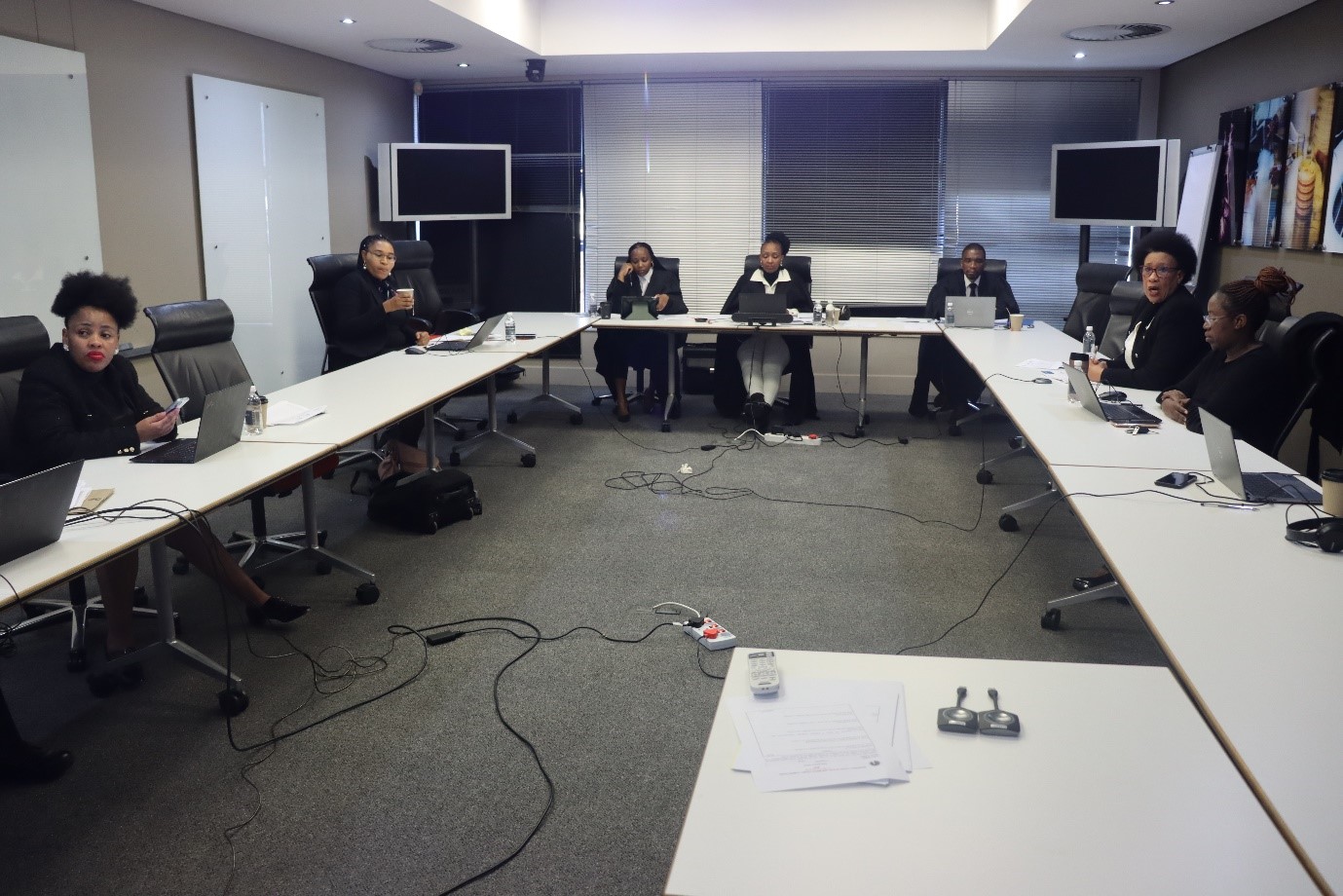
Africa Round of the Manfred Lachs Moot Court Competition, held virtually, by Judges seating at the CSIR Knowledge Commons from 22nd– 24th May 2024.
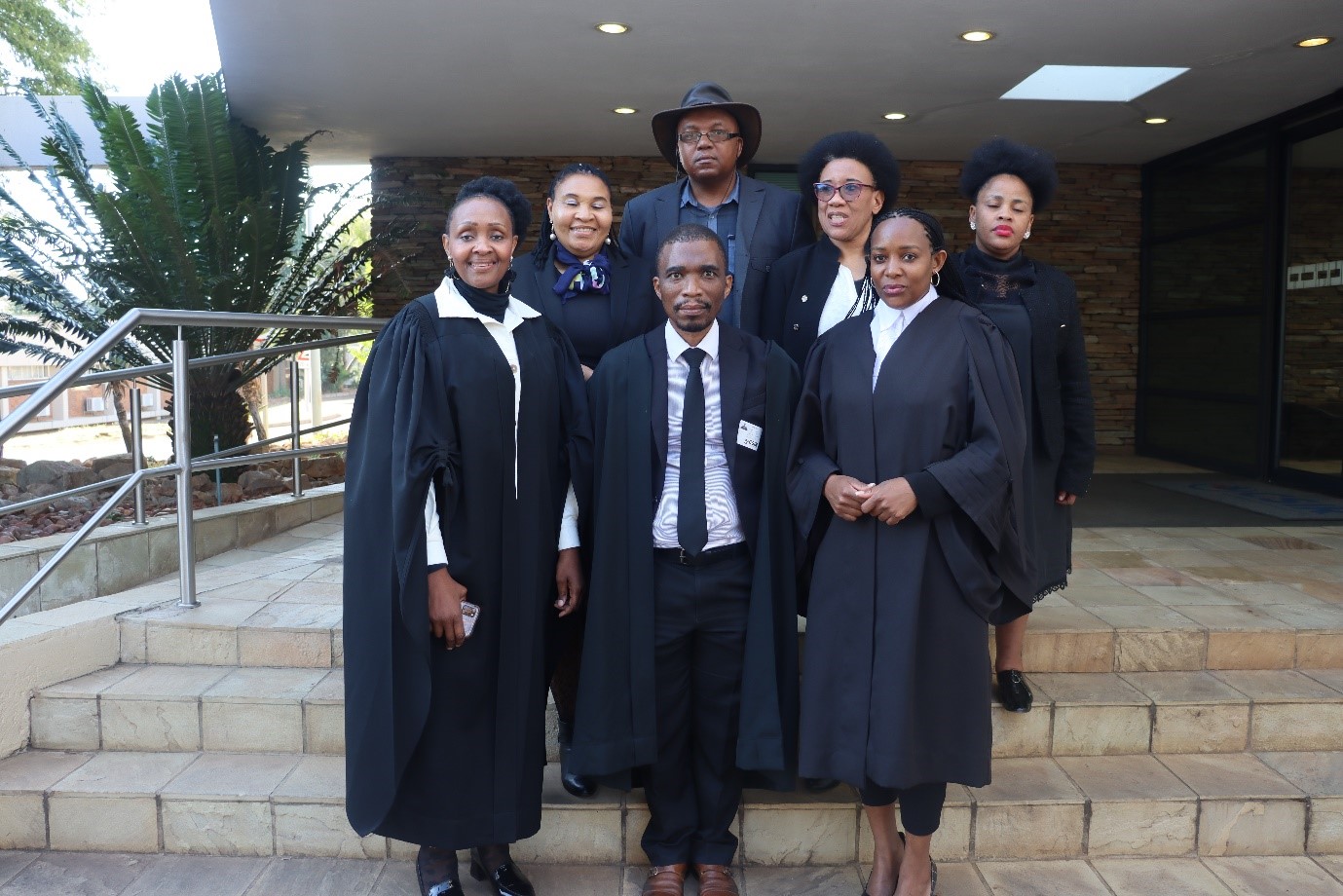
The South African Team
Congratulations to the Midlands State University (Zimbabwe), which was announced as the Winners of the Africa Regional Round of the Manfred Lachs Space Law Moot Court Competition and to the University of Calabar (Nigeria) which took second place, and the second runner up was University of Benin (Nigeria).
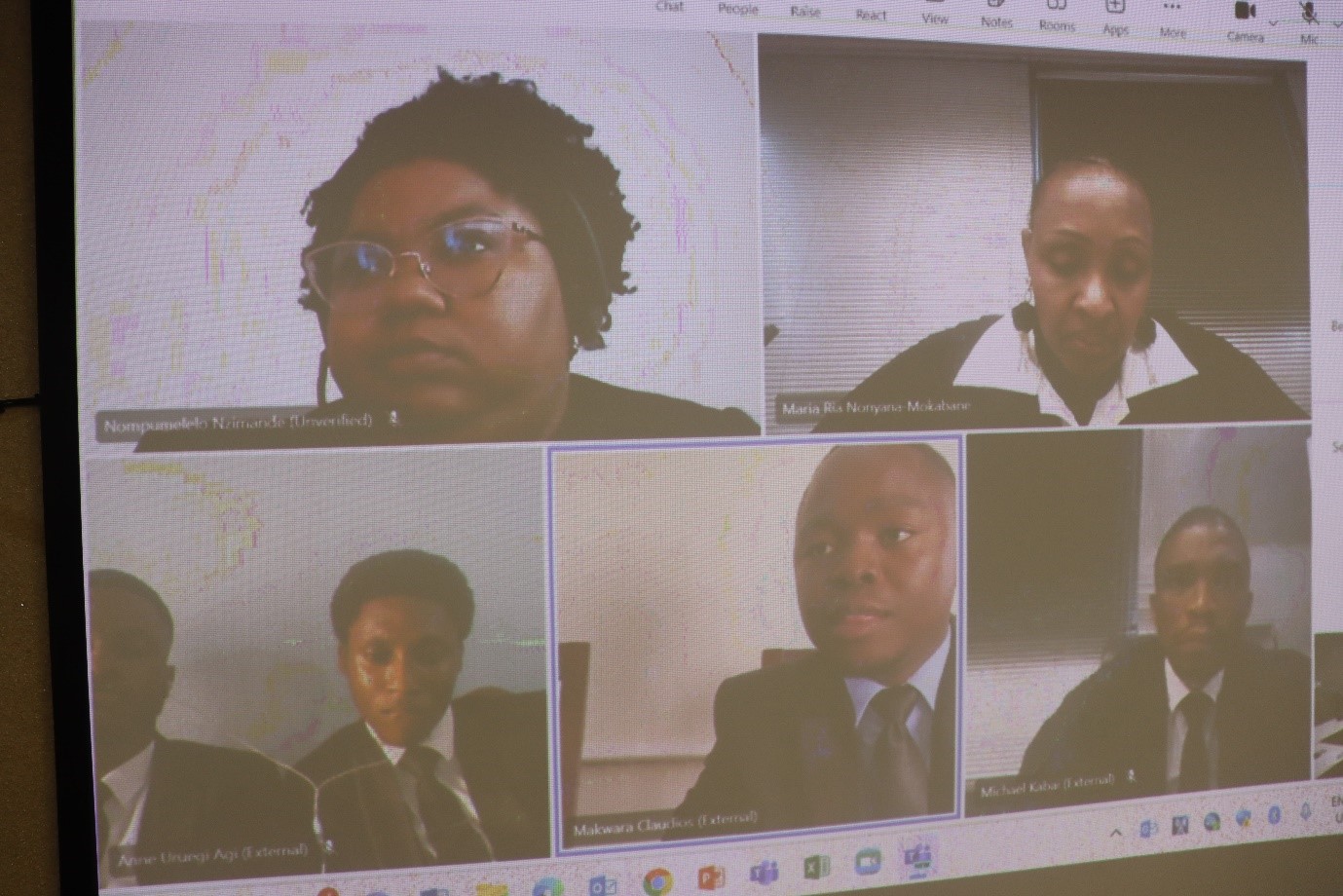
Ms Nompumelelo Nzimande on top-row and Dr Maria Ria Nonyana-Mokabane of the dtic with the Students competing teams from the University of Calabar and Midlands State University (Zimbabwe)
This year’s competition was hosted virtually by the Department of Trade, Industry and Competition (the dtic) and SANSA, in collaboration with CSIR and its program; NEOSS, the National Space Research and Development Agency (NASRDA) as well as Law Space Africa. 11 universities registered for this competition, across the African Continent. However only 6 submitted their memorials for the Competition, namely from Nigeria; Obafemi Awolowo, Benin, Calabar, Uganda; Makerere & Kampala International University and Zimbabwe, Midlands State (MSU). This again shows enormous interest in this unique field of law from the African universities as 6 participated in the Nigeria national rounds as coordinated by NASRDA.
The above-mentioned universities participated and competed in the Manfred Lachs Space Law Moot Court Competition, virtually. The winners of this year’s competition were Midlands State University of Zimbabwe.
The African regional round is an annual space moot court competition organised by the International Institute of Space Law (IISL) and hosted locally by the dtic & South African Council for Space Affairs (SACSA) under the leadership of the Regional Coordination of the dtic led by Space Affairs unit.
The African regional round was held virtually with Judges stationed at the CSIR Knowledge Commons. During this time, Midlands State University, Zimbabwe came first followed by University of Calabar of Nigeria which emerged as a first runner-up and University of Benin as second runner-up. In addition to the primary awards, the Makerere University of Uganda emerged as the institution with the Best Memorials, and Mr Watson Tonderai Somerai from the Zimbabwe clinched the Best Oralist award.
The Memorials and orals for the Competition were judged by public and private Counsels Dr Asangire Oprong, Ms Vivianne Muthoni of Kenya, and Dr Maria Ria Nonyana-Mokabane, Mr Michael Kabai, Ms Nompumelelo Nzimande, Adv. Patrick Sekhula of South Africa and Adv. Icho Kealotswe-Matlou of Botswana respectively. The judges who were physically available are pictured below:-
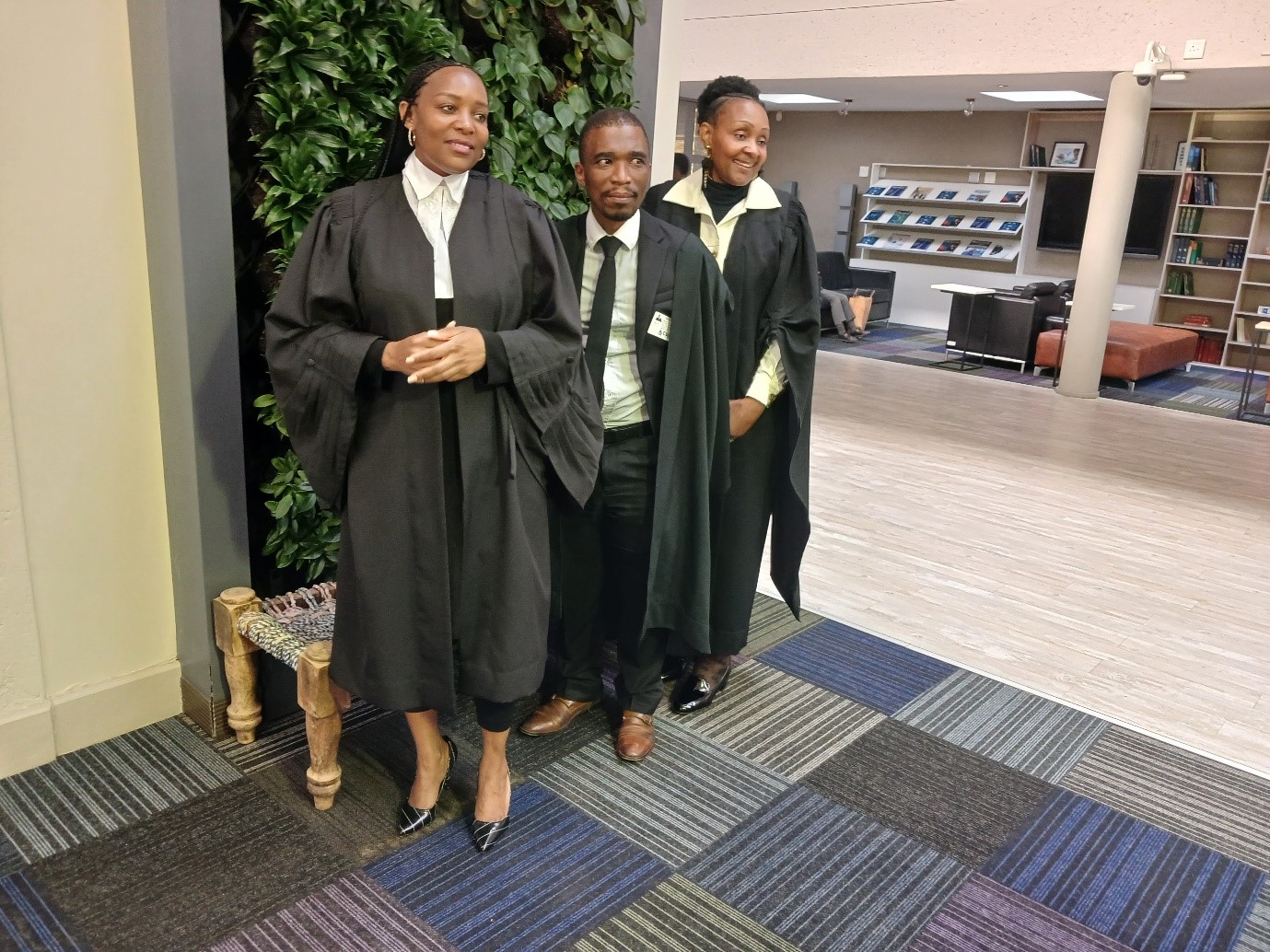
FROM LEFT TO RIGHT: Adv. Icho Kealotswe-Matlou (Private), Mr Michael Kabai (SANSA), and Dr Maria Ria Nonyana-Mokabane of the dtic
The competition offers a platform and exposure for students, academics, legal professionals and space community to legal debates on matters of international space law. It particularly presents a unique opportunity for university law and science students from different parts of the world to engage in legal matters related to outer space, telecoms, earth observation and aerospace.
The winner; Midlands Sate University will represent Africa Region through competing in the world finals at the 75th IAC to be held from 14-18 October 2024 in Milan, Italy the world’s largest convention for the space industry, in order to partake in the World Finals. The world finals are traditionally judged by three members of the International Court of Justice. The Competition is a simulation of a fictional dispute between countries before the ICJ, the judicial organ of the United Nations.
This year’s case is based on a hypothetical space law dispute brought before the International Court of Justice (ICJ). The 2024 problem concerns questions related to a case “The Protection of Dark and Quiet Skies and The Freedom of Scientific Investigation” This case is particularly important for South Africa as the country has invested over the years in the SKA project for scientific advancement
The Competition aims to promote the interest, involvement and knowledge of Space Law amongst students by providing a fair and competitive environment for the exchange of thoughts and deepening of understanding of Space Law. The Regional coordinator, Ms Majaja from the dtic noted that the competition encourages further development on the subject matter of Space Law in the curriculum of academic institutions and assists participating countries in developing technical legal space capacity by preparing space lawyers, since many African countries are pursuing their respective space programmes. She was pleased with enormous effort and dedication displayed by all teams and their coaches. Special thanks went to the judges for their impeccable service over the years and the staff in her office and that of SANSA and the CSIR.
Amongst her comments were the criticality for the continent to be capacitated, knowledgeable and kept abreast of the current space regulatory matters since the rapid advancement of space technologies presents a unique opportunity to address sustainable development challenges across African continent. The participation of National Coordinators, space agencies such as NASDRA, Ugandan, Botswana & Kenyan institutes, that have been involved so far has been applauded and more are needed to bring awareness for more teams.
